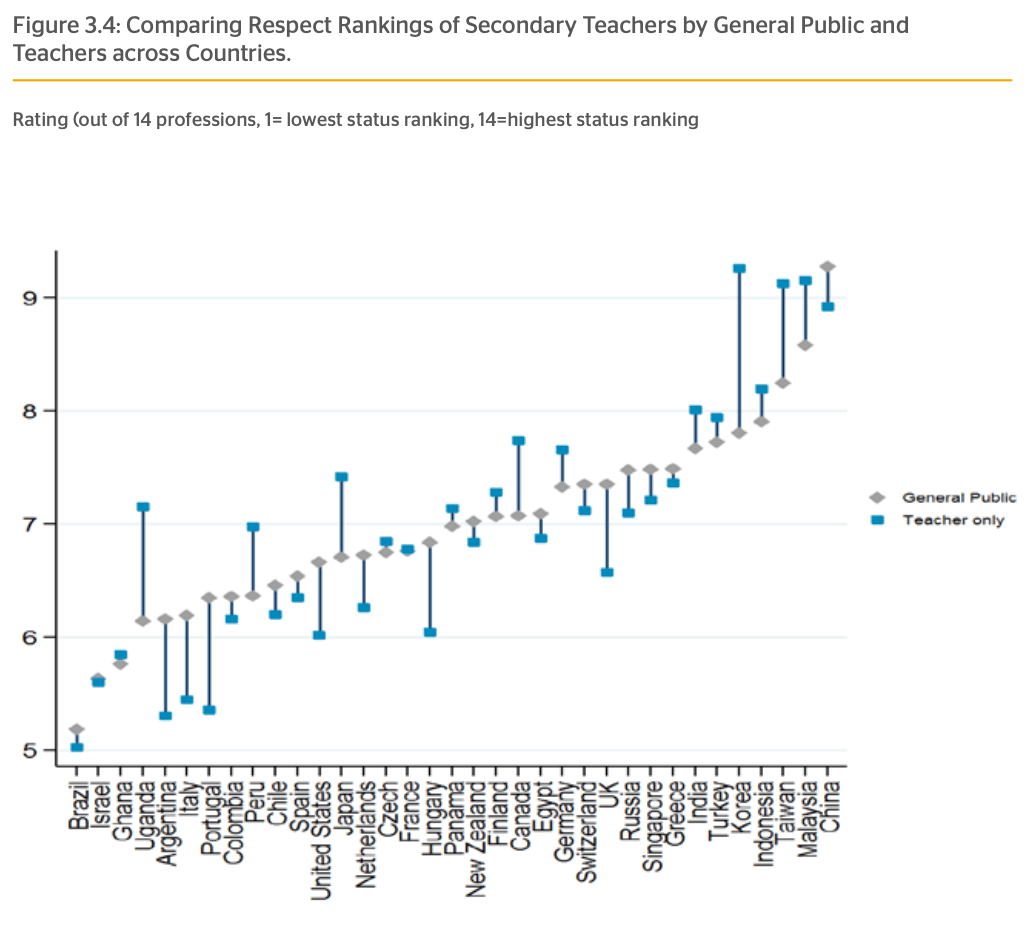
No one goes into teaching to get rich, but at least the benefits are good, right?
In This Lesson

What is included in teacher benefits?
How are teacher benefits negotiated?
Do retired teachers receive benefits?
Do teachers receive lifetime benefits?
Who pays for health insurance for teachers?
Can schools afford to pay for health insurance?
Is there a risk of fiscal disaster?
Does teaching have psychic benefits?
How do teacher sick days work?
▶ Watch the video summary
★ Discussion Guide.
Non-salary benefits — especially health insurance — are a complex element of teacher compensation. This lesson explains what these benefits actually are, and why your assumptions about them might be wrong. (Note that this lesson doesn't discuss teacher pensions — they're the subject of Lesson 3.11)
Teacher health benefits are negotiated locally
Teachers are employed by school districts. Aside from salary and pension, the biggest "benefit" of teaching is health insurance. Back in the day, many school districts paid for top-grade lifetime health insurance for teachers and their families. Those days are long gone. Health care costs have exploded, and there's not a magic source of funding for it. Teachers tend to be somewhat healthier than the general public, and they collectively have a bit of bargaininig power. In general, health insurance costs for teachers have grown only a little slower than for other policy holders.
School districts have to make difficult tradeoffs, balancing the interests of students, teachers, staff and community members. The tradeoffs are codified in contracts, which are negotiated with the teachers' union and others. There is nothing automatic about teacher benefits like health insurance.
Good health insurance for teachers is a tradition, not a law.
The main point here is that good heath insurance for teachers is a choice. It's a tradition, not a law. Districts that spend more on health insurance must spend less on salaries. It's just math.
Do retired teachers receive benefits?
Historically, many districts used to provide health care benefits for teachers in retirement. As the cost of this benefit ballooned, districts and unions dropped it. There are still surviving retirees with this benefit, but districts are not offering it anymore. It's too expensive.
If a district over-commits on teacher benefits, who pays?
The obligation to provide public education is enshrined in the state constitution. This means that the State of California is ultimately on the hook for ensuring that all students get an education. The state doesn't operate schools directly — it delegates its authority to school districts. California taxpayers have a shared interest in the solvency of school districts.
For decades, California had weak controls to account for the long-term promises that its 1,000 school districts made in contracts with teachers and other employees. Some of those promises were enormous. Notably, the massive Los Angeles Unified (LAUSD) committed to provide health benefits to teachers for life, a huge uncapped liability. In accounting lingo, obligations like this fall under the catch-all term Other Post-Employment Benefits (OPEB).
As the old axiom goes, in the end all debts are paid somehow. According to Chad Aldeman of Bellwether Education Partners, as of 2016 the district was "already spending about $493 per pupil and $12,221 per teacher to provide former employees, their spouses, and dependents with free medical, dental, and vision coverage." In 2023, the credit rating agency Fitch estimated the district's remaining unfunded OPEB liability at about $10.2 billion, roughly equivalent to $19,000 per student. The issue still smoldered in 2025.
Sick days are an abused benefit
The use of time in education is the focus of Ed100 Chapter 4
Health benefits are an important factor in teacher compensation, and sick day policies are negotiated as part of the contract. It is pretty typical for a teacher contract to allow for up to ten sick days with pay. Districts have varying cultures when it comes to sick days. In many schools teachers come to school unless they absolutely can't. In others, teachers routinely abuse the benefit, treating sick days as a form of time off. It matters: teacher absences are bad for learning.
Nationally, the average employee with a college degree misses work about three days per year (1.2%). For teachers in traditional public schools the average is eight days per year (4.4%). The teacher absence rate varies wildly from school to school because schools are inconsistent in how they treat teacher absenteeism. There are no easy answers. To encourage attendance, some districts have tried offering a cash benefit to teachers that don't take sick days, but the policy raised health concerns even before the pandemic.
It's tempting to imagine that the cost of an absent teacher is a few hundred bucks, the one-day the cost of hiring a substitute. If only! Here's a more complete way to think about it. In 2023 the average cost of public education was about $17,000 per student per year — let's call it roughly $1,000 per day. If there are 30 students in a class, the total invested in that day of school is about $30,000. Ask yourself: is the substitute just as effective as the regular teacher? 50% as effective? 10%? The direct cost of paying a substitute is a tiny fraction of the real cost in lost learning.
The psychic benefits of teaching
Money isn't everything.
For most people who choose teaching as their profession, it's not just a job. Teachers care about kids, and education makes a difference in their lives. Most teachers also care about being appreciated and respected for the work they do. Respect for educators has a cultural component, which the Varkey Foundation has studied in a series of international surveys. One curious finding of their survey work is that American high school teachers tend to hold their own profession in lower esteem than the general public does:
How to show appreciation for teachers
It's difficult to change a whole national culture to systematically respect and appreciate teachers. But there are things you can do to help, and many of them aren't difficult or costly. For example, of course teachers appreciate cards and authentic expressions of appreciation.
Is there a teacher who made a difference in your life? Reach out and tell them. Don't overthink it.
Last updated: September 2025
Quiz×
CHAPTER 3:
Teachers
-
Teachers
Overview of Chapter 3 -
Teacher Recruitment
Who Teaches, and Why? -
Teacher Certification
How Are Teachers Prepared? -
Teacher Retention
How to Keep a Teacher -
Teacher Placement
Who Teaches Where? -
Teacher Development
How Do Teachers Improve? -
Teacher Collaboration
How do Educators Work Together? -
Teacher Benefits
Healthcare and Sick Days -
Teacher Pay
How much are teachers paid? -
Teacher Evaluation
How Do Teachers Know If They Are Succeeding? -
Tenure and Seniority
Teacher Tenure - Good? Evil? -
Pensions
How Good is a Teacher's Pension?
Related
- There are no related lessons.
Sharing is caring!
Password Reset
Search all lesson and blog content here.
Login with Email
We will send your Login Link to your email
address. Click on the link and you will be
logged into Ed100. No more passwords to
remember!
















Questions & Comments
To comment or reply, please sign in .
Mohammad Kashmiri August 28, 2022 at 5:57 pm
Robert Niz December 14, 2018 at 6:39 am
Justice Landes February 15, 2024 at 9:09 pm
Carol Kocivar September 25, 2017 at 4:49 pm
http://lao.ca.gov/publications/report/3704?utm_source=subscription
Jeff Camp July 5, 2018 at 12:46 pm
Selisa Loeza October 23, 2021 at 12:14 am
Jeff Camp October 23, 2021 at 9:24 am
Jeff Camp February 10, 2017 at 6:08 pm
ptalisa April 28, 2015 at 5:58 pm
jenzteam February 27, 2015 at 1:40 pm
nguyen_khanh January 17, 2015 at 11:47 pm